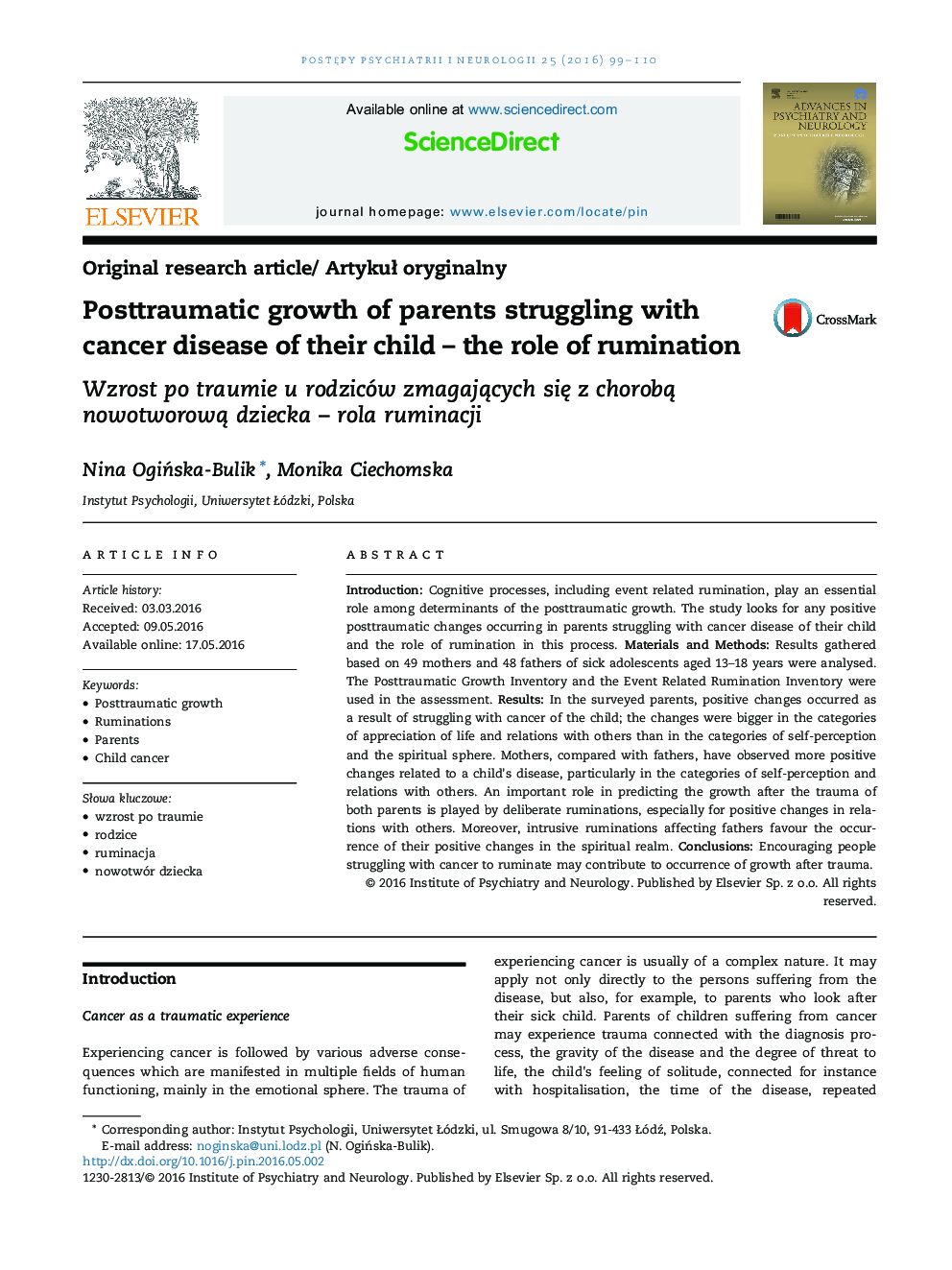| Article ID | Journal | Published Year | Pages | File Type |
|---|---|---|---|---|
| 331715 | Postepy Psychiatrii i Neurologii | 2016 | 12 Pages |
IntroductionCognitive processes, including event related rumination, play an essential role among determinants of the posttraumatic growth. The study looks for any positive posttraumatic changes occurring in parents struggling with cancer disease of their child and the role of rumination in this process.Materials and MethodsResults gathered based on 49 mothers and 48 fathers of sick adolescents aged 13–18 years were analysed. The Posttraumatic Growth Inventory and the Event Related Rumination Inventory were used in the assessment.ResultsIn the surveyed parents, positive changes occurred as a result of struggling with cancer of the child; the changes were bigger in the categories of appreciation of life and relations with others than in the categories of self-perception and the spiritual sphere. Mothers, compared with fathers, have observed more positive changes related to a child's disease, particularly in the categories of self-perception and relations with others. An important role in predicting the growth after the trauma of both parents is played by deliberate ruminations, especially for positive changes in relations with others. Moreover, intrusive ruminations affecting fathers favour the occurrence of their positive changes in the spiritual realm.ConclusionsEncouraging people struggling with cancer to ruminate may contribute to occurrence of growth after trauma.
